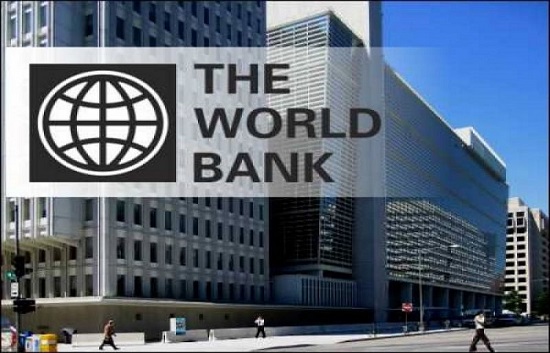This post has already been read 3209 times!
Two years after it moved up 24 places in World Bank’s Ease of Doing Business index, Nigeria recorded another milestone Friday with the apex bank naming it “one of the top-20 improvers in doing business out of 190 countries.”
According to a release by Special Adviser to the President on Ease of Doing Business, Dr. Jumoke Oduwole, World Bank team made the announcement Friday ahead of the formal release of 2020 World Bank Doing Business rankings.
Oduwole described the World Bank Doing Business Report as an objective assessment of prevailing business environments based on a number of ease of doing business indicators, noting that in Nigeria, the report assesses doing business conditions in the two largest commercial cities of Lagos and Kano.
According to her, Nigeria attained that feat in view of World Bank’s acknowledgement of reforms spearheaded by Presidential Enabling Business Environment Committee (PEBEC) in the areas of “operationalising a new electronic platform that integrates the tax authority and the Corporate Affairs Commission (CAC).” PEBEC is chaired by Vice-President Yemi Osinbajo.
She also said Nigeria secured a rank of that magnitude in acknowledgement of the reforms it carried out in some of the World Bank Doing Business indicator areas including “starting a business, registering property, getting construction permits, getting electricity, enforcing contracts, and trading across borders.”
Explaining further innovative moves which earned Nigeria that feat, Oduwole said the decision by Corporate Affairs’ Commission (CAC) to upgrade its reservation platform in Kano, transparent digitisation of Cadastral plans in Lagos, simplification of access to electricity in Nigeria and efficiency of commercial litigations in smaller cases were factors which propelled Nigeria to that height.
“The CAC also upgraded its name reservation platform and, in Kano, there is now an electronic platform for registering business premises online, eliminating the need to appear in person. In Lagos, land administration was made more transparent following the digitisation of cadastral plans in a geographic information system; digital copies of cadastral plans are now easily obtainable.
“Nigeria also made getting electricity easier by allowing certified engineers to conduct inspections for new connections. Initiatives also made commercial litigation of smaller cases more efficient. The Chief Judges in Lagos and Kano issued practice directions for small claims courts introducing pre-trial conferences and limit adjournments. “Finally, customs integrated more agencies into its electronic data interchange system, and port authorities launched an e-payment system, speeding up both exports and imports,” she said.
According to the presidential aide, Nigeria’s score has witnessed a steady improvement in World Bank Doing Business Report since 2016, after initial years of decline in both score and ranking.
However, she said the reforms which started in 2016 began to yield results in 2017 when Nigeria moved up 24 places in the Doing Business rankings adding that Nigeria was also recognised as one of the top 10 reformers in the area of doing business the same year.
Oduwole noted that “the recognition being given to Nigeria as one of the top 20 most improved countries, who have implemented the most reforms this year, is significant because we weren’t even able to achieve some of the key reforms we had pursued, but what we have done so far is being recognised. This validation confirms that our strategy is working and we will continue to push even harder.”
She boasted further that “with the impending ratification of the Companies and Allied Matters Bill and the introduction of the Business Facilitation (Omnibus) Bill, 2019 in view, along with other pending regulatory, judicial and sub-national reforms, Nigeria is poised to meet its goal of being a top 100 ranked economy by 2020. The announcement is indicates that our goal of moving into the top 70 doing business destinations by 2023 remains achievable.”



